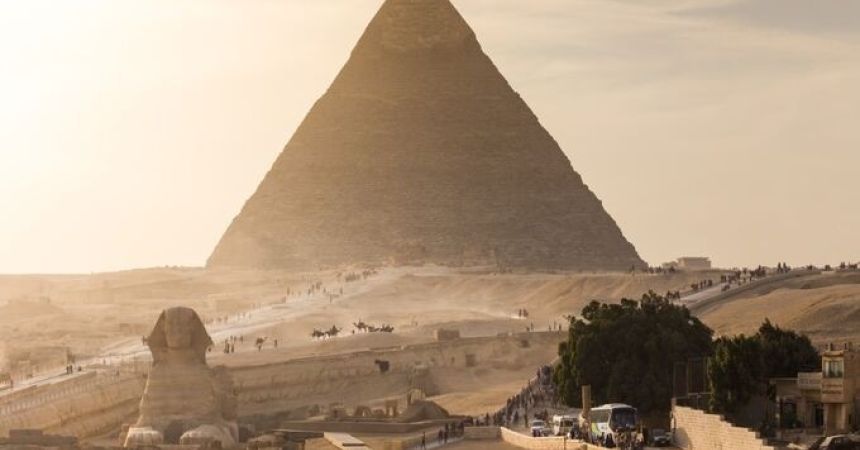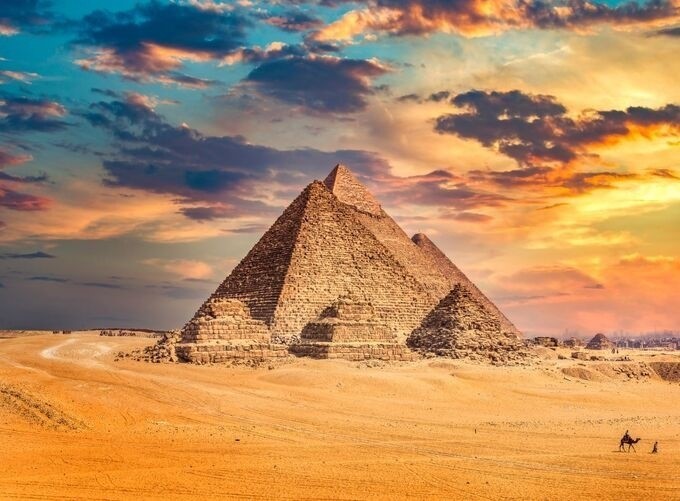
What Do I Need to Prepare for a Trip to Egypt?
Egypt, with its majestic pyramids, ancient temples, and vibrant culture, is a dream destination for many travelers. Preparing for a trip to Egypt involves more than just booking flights and accommodations; it requires careful planning to ensure a smooth and enjoyable experience. This comprehensive guide will cover everything you need to prepare for your Holiday to Egypt, from travel documents and health precautions to cultural considerations and practical travel tips.
Essential Preparations for Your Egypt Trip
-
Travel Documents and Visas
1.1 Passport
Overview:
- Validity: Ensure your passport is valid for at least six months beyond your planned departure date from Egypt. This is a common requirement for entry into the country.
- Blank Pages: Your passport should have at least one or two blank pages for entry and exit stamps.
Tips:
- Photocopies: Make photocopies of your passport and keep them separate from the original in case of loss or theft.
1.2 Visa Requirements
Overview:
- Tourist Visa: Most travelers to Egypt will require a visa. You can obtain a visa upon arrival at the airport or apply for an e-visa before your trip.
- Visa-Free Travel: Citizens of certain countries may have visa-free access for short stays. Check the specific visa requirements for your nationality.
Tips:
- e-Visa: Applying for an e-visa online can save time and streamline your entry process. Visit the official Egyptian government website for visa applications.
- Visa on Arrival: If you choose to obtain a visa on arrival, ensure you have the required fee in cash (USD or EUR) and prepare for potential queues.
-
Health and Safety
2.1 Vaccinations
Recommended Vaccinations:
- Routine Vaccinations: Ensure you are up-to-date on routine vaccinations such as measles, mumps, rubella (MMR), and tetanus.
- Travel-Specific Vaccinations: Consider vaccinations for hepatitis A, hepatitis B, and typhoid, especially if you plan to visit rural areas.
Tips:
- Consult a Travel Clinic: Visit a travel clinic or healthcare provider for personalized advice and vaccinations before your trip.
2.2 Health Precautions
Food and Water Safety:
- Safe Eating: Egyptian food is generally safe, but stick to well-cooked foods and drink bottled or purified water to avoid gastrointestinal issues.
- Water: Tap water in Egypt may not always be suitable for drinking. Opt for bottled water, which is widely available.
Medical Kit:
- Essentials: Pack a basic medical kit with over-the-counter medications for common ailments like headaches, digestive issues, and allergies. Include any prescription medications you may need.
Tips:
- Travel Insurance: Obtain comprehensive travel insurance that includes coverage for medical emergencies, trip cancellations, and other unexpected events.
2.3 Safety Tips
General Safety:
- Personal Safety: Egypt is generally safe for tourists, but exercise caution in crowded places and be mindful of pickpockets in busy areas.
- Local Laws: Familiarize yourself with local laws and customs. Respect local traditions and follow any travel advisories issued by your government.
Emergency Contacts:
- Local Emergency Numbers: Know the local emergency numbers (police: 122, ambulance: 123) and the address of your nearest embassy or consulate.
-
Currency and Money
3.1 Currency
Overview:
- Egyptian Pound (EGP): The official currency of Egypt is the Egyptian Pound. Familiarize yourself with the currency and exchange rates before traveling.
- Exchange: Exchange some money before you travel and use local exchange services or ATMs upon arrival in Egypt.
Tips:
- Credit Cards: Credit cards are widely accepted in major cities and tourist areas, but it’s a good idea to carry some cash for smaller transactions and in more remote areas.
3.2 Budgeting
Cost Considerations:
- Accommodation: Egypt offers a range of accommodation options, from budget hostels to luxury hotels. Plan your stay based on your budget and preferences.
- Food: Enjoy a variety of dining options from street food to fine dining. Budget for meals, snacks, and beverages.
Tips:
- Tipping: Tipping is customary but not obligatory. It is common to round up the bill or leave a small tip for good service in restaurants and cafes.
-
Packing Essentials
4.1 Clothing
Weather Considerations:
- Seasons: Egypt experiences varied weather depending on the region and season. Pack accordingly based on the time of year and destinations you’ll be visiting.
- Spring and Fall: Mild temperatures; pack layers and comfortable clothing.
- Summer: Hot, especially in desert regions; lightweight and breathable clothing is recommended.
- Winter: Cooler, especially in northern Egypt; bring warm layers and a good jacket.
Cultural Sensitivity:
- Modesty: Dress modestly, especially when visiting religious sites. Women should cover their shoulders and knees, and men should avoid wearing shorts in these settings.
Tips:
- Comfortable Footwear: Bring comfortable walking shoes or sandals for exploring cities and archaeological sites. For desert adventures or hiking, include suitable footwear.
4.2 Travel Essentials
Items to Pack:
- Documents: Passport, visa (if required), travel insurance, and copies of important documents.
- Electronics: Power adapters for Egyptian electrical outlets (Type C and F), and chargers for your devices.
- Personal Items: Toiletries, sunscreen, and a reusable water bottle.

Tips:
- Daypack: Carry a small daypack for day trips and excursions.
4.3 Specialty Items
For Specific Activities:
- Desert Travel: Pack sun protection, a hat, and plenty of water if you plan to explore desert areas.
- Swimming: Bring swimwear if you plan to visit hotel pools or the Red Sea.
Tips:
- Local Souvenirs: Save space in your luggage for souvenirs and gifts you may buy during your trip.
-
Transportation in Egypt
5.1 Getting Around
City Transportation:
- Public Transport: In cities like Trip to Cairo and Alexandria, you can use public buses, trams, and the metro. Taxis and ride-sharing services are also available.
- Taxis: Taxis are readily available. Ensure the meter is used or agree on the fare before starting your ride.
Intercity Travel:
- Trains: Egypt’s rail network connects major cities. The train system offers different classes and services.
- Buses: Intercity buses are available and offer various comfort levels. Companies like Go Bus and SuperJet provide services between cities.
- Car Rentals: Renting a car offers flexibility for exploring Egypt. Ensure you have an international driving permit if required and familiarize yourself with local driving rules.
Tips:
- Driving: Be cautious while driving in Egypt. Traffic conditions can be chaotic, and driving styles may differ from what you’re used to.
-
Cultural Considerations
6.1 Respecting Local Customs
Dress Code:
- Modesty: Dress modestly in public places and religious sites. Women should cover their shoulders and knees, and men should avoid wearing shorts.
Etiquette:
- Greetings: Greet people with a friendly “Salam Alaikum” (Peace be upon you) and use the right hand for greetings and giving/receiving items.
- Hospitality: Egyptians are known for their hospitality. Accepting tea or coffee when offered is a common social practice.
Tips:
- Photography: Always ask for permission before photographing people, especially in rural areas or at religious sites.
6.2 Language
Basic Phrases:
- Arabic: While many Egyptians speak English, learning a few basic Arabic phrases can enhance your experience and show respect for the local culture.
Tips:
- Phrasebook: Carry a phrasebook or translation app to assist with communication.
-
Health and Safety
7.1 Personal Safety
General Advice:
- Be Aware: Stay aware of your surroundings, especially in crowded areas and tourist hotspots.
- Avoid Risks: Avoid risky behavior, such as accepting rides from unlicensed drivers or venturing into unsafe areas.
Tips:
- Emergency Contacts: Keep a list of local emergency contacts and the address of your accommodation.
7.2 Health Precautions
Travel Health:
- Medical Kit: Pack a basic first-aid kit and any prescription medications you might need.
- Vaccinations: No specific vaccinations are required for Egypt, but ensure you are up-to-date on general health vaccinations.
Tips:
- Travel Insurance: Obtain comprehensive travel insurance that includes medical coverage.
-
Enjoying Your Trip in Egypt
8.1 Embrace the Experience
Open Mind:
- Cultural Immersion: Embrace the rich history, culture, and cuisine of Egypt. Be open to new experiences and interactions with locals.
Explore:
- Sightseeing: Explore both popular tourist destinations and off-the-beaten-path locations. Visit historical sites, natural wonders, and vibrant markets.
8.2 Final Tips
Flexibility:
- Adapt: Be prepared for changes in plans and unexpected experiences. Flexibility will help you make the most of your trip.
Stay Connected:
- Communication: Stay connected with family and friends back home. Use local SIM cards or international roaming plans to stay in touch.
Tips:
- Document Your Journey: Capture your experiences through photos and journals. This will help you remember your adventure and share it with others.
By following these guidelines, you’ll be well-prepared for your trip to Egypt. Enjoy the wonders of this incredible country and have a memorable and enriching travel experience.



